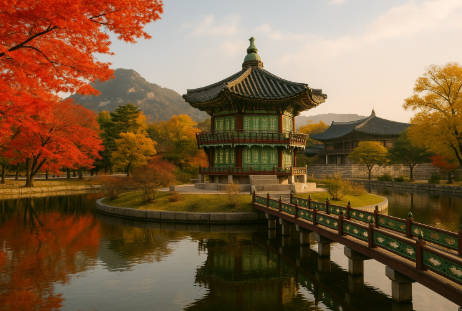The Essence of Korean Literature
Korean literature, an intrinsic part of Korea’s cultural heritage, provides invaluable insights into the country’s ethos and history. Its depth spans centuries, serving as a reflective mirror for Korea’s social, political, and philosophical evolution. Characterized by versatility, it ranges from ancient oral traditions to contemporary prose and poetry. This literary world invites readers globally to explore the profound stories and themes emerging from the Korean peninsula.
Historical Roots and Evolution
The Korean literary tradition began with oral storytelling long before the invention of writing systems. Initially, these oral stories preserved the cultural narratives and genealogies of ancient Korean tribes. As the Hangul script was developed during the Joseon Dynasty, a new era of literature emerged, fostering poets and writers like Yi Hwang and Joseon Sijo poets. This development allowed for increased literacy and accessibility to literature. The literary scene continued to evolve, reflecting the changing dynamics and challenges faced by Korea over time.
The Modern Korean Literary Landscape
In modern times, Korean literature has diversified, encapsulating the collective experiences of war, division, and rapid modernization. Authors such as Han Kang, who won the Man Booker International Prize for her novel “The Vegetarian,” have brought international attention to Korean literature. Contemporary writers often tackle themes of identity, global influence, and historical tensions. This diverse tapestry of work provides a rich resource for understanding Korea’s cultural narrative today.
Significant Works and Authors
Many works and authors have left indelible marks on Korean literature. For instance, “The Tale of Chunhyang,” a classic narrative, offers insights into the feudal society of ancient Korea. In more recent history, writers such as Kim Young-ha and Hwang Sok-yong have challenged societal norms through their powerful narratives. Their works have both entertained and provoked critical thought among readers, enhancing the global appreciation for Korean literature.
Cultural Impact and Global Reach
Korean literature continues to wield substantial cultural influence both domestically and internationally. Its impact is evident in various global literary festivals and academic discourse. With the increasing popularity of Korean culture worldwide, the demand for translated Korean literary works has grown significantly. This global reach not only enriches the international literary scene but also fosters a deeper cross-cultural understanding.
| Author | Notable Work | Theme |
|---|---|---|
| Han Kang | The Vegetarian | Human Psychology |
| Kim Young-ha | I Have the Right to Destroy Myself | Existentialism |
| Hwang Sok-yong | The Guest | National Division |
The Future of Korean Literature
Looking forward, Korean literature is poised for further innovation and recognition. Emerging writers are exploring new genres and forms, influenced by both digital advancements and global literary trends. South Korea’s continued investment in cultural outreach and translation initiatives promises to introduce more readers to its rich literary tradition. This proactive stance will likely fortify Korean literature’s role on the world stage.
FAQ
Q: What makes Korean literature unique?
A: Korean literature is unique in its combination of traditional themes and modern narratives, offering a deep insight into Korea’s social and historical contexts.
Q: How can I access translated Korean literature?
A: Translated Korean books are widely available through online publishers and book retailers, reflecting the growing interest in Korean cultural products worldwide.
Q: Who are some contemporary Korean authors to explore?
A: Besides Han Kang, other contemporary authors include Bae Suah and Yun Ko-eun, known for pushing boundaries in narrative structure and subject matter.
Summary
- Korean literature offers a profound reflection of Korea’s cultural and historical journey.
- The evolution from oral traditions to modern novels highlights diverse narratives.
- Contemporary authors contribute significantly to the global literary scene.
- The future holds promising advances and broader international recognition for Korean literature.
#KoreanLiterature #HanKang #KoreanCulture #Sijo #JoseonDynasty #Hangul #ModernKoreanLiterature #AsianAuthors #CulturalHeritage #GlobalLiterature #KoreanProse #HistoricalNarratives #ContemporaryWriters #EastAsianLiterature #LiteraryInnovation #InternationalLiterature #KoreanAuthors #KoreanPoetry #Translation #CulturalUnderstanding #BookerPrize #GlobalReading #LiteraryAwards #CulturalExchange #LiteraryTrends #EmergingWriters #TraditionAndModernity #DigitalLiterature #CrossCulturalLiterature #LiteraryFestivals

